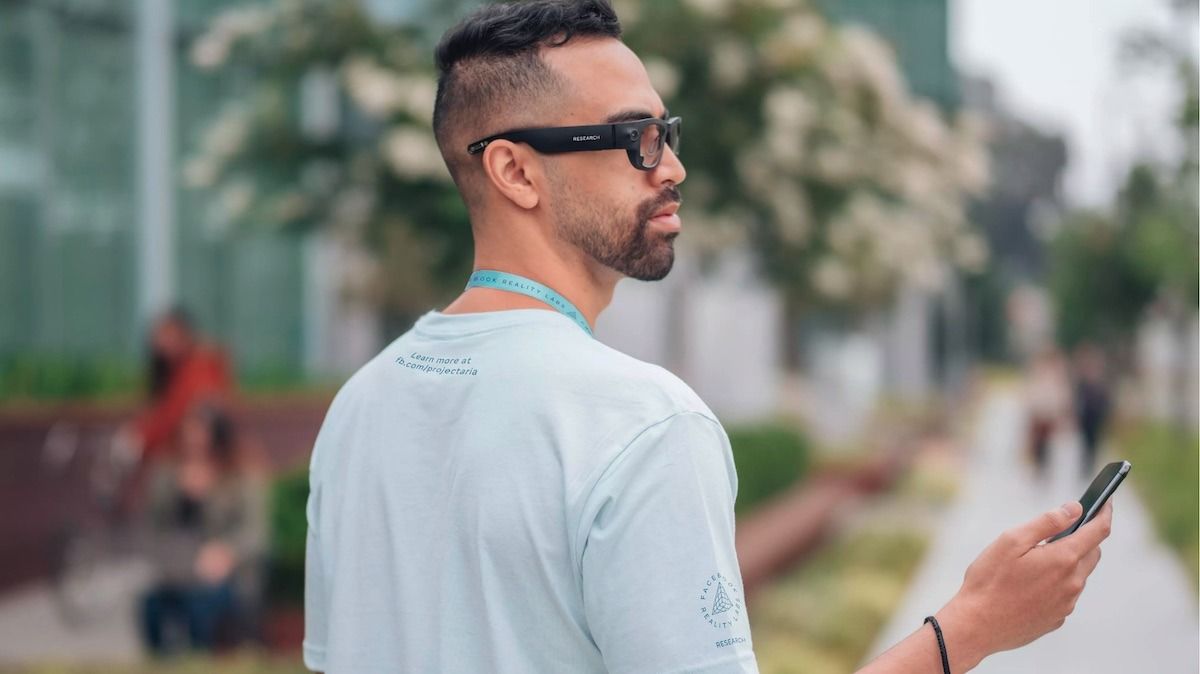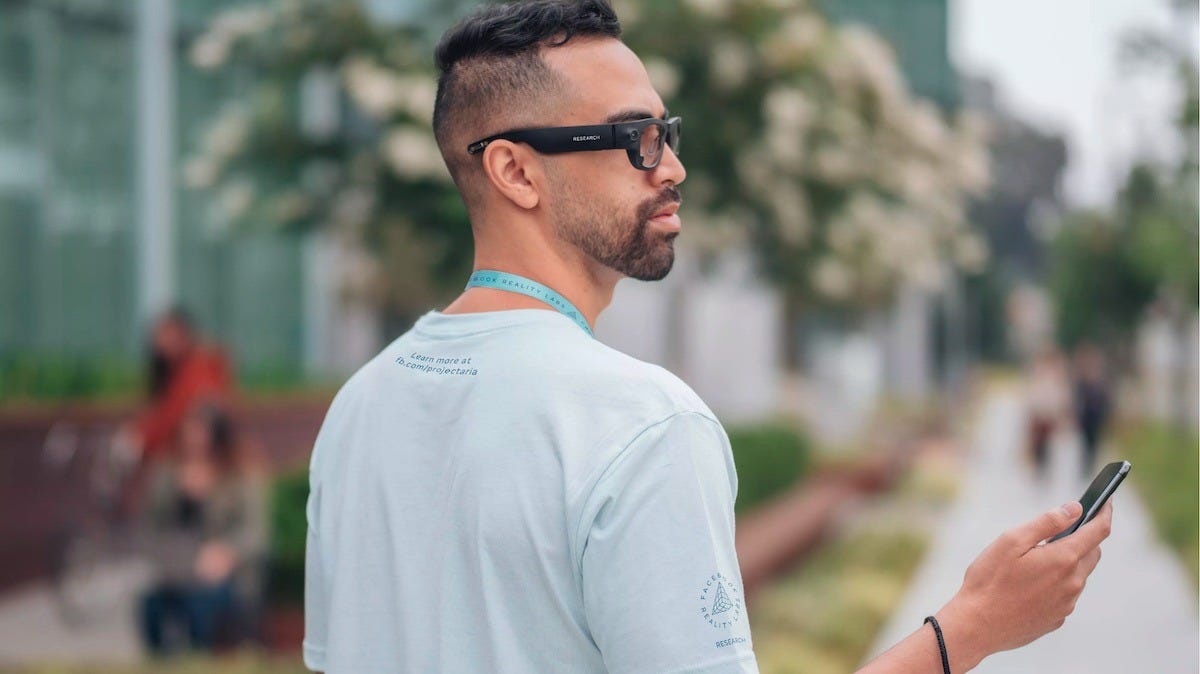Facebook’s principles for building AR hardware
Facebook suggests it will put people’s interests over profits, but how realistic is this promise for a company whose business model is built on advertising?

Speaking of tech companies that mine your attention, Facebook recently held their Connect conference where they unveiled their latest progress in VR and AR. Among other things, the company announced that they will be partnering with Luxottica (the makers of Ray-Ban) to create a pair of stylish, augmented reality (AR) glasses by 2021.

As we’ve seen with the infamous Google Glass, controversy and backlash is inevitable when dealing with camera-enabled eyewear. This is compounded by the fact that Facebook has a poor record on privacy and has usually been reactive (rather than proactive) about societal issues created by its far-reaching software and services.
This time, the tech giant is trying a different approach — launching initiatives around safety, privacy, ethics, and inclusion years before it is ready to sell AR hardware.
- Project Aria. Research tool (pictured above) to help Facebook “develop the safeguards, policies, and even social norms necessary to govern the use of AR glasses and future wearable devices”. Read more.
- Research grants. Facebook is offering $1M in funding for research focused on the impact of AR, VR, and smart device tech on non-users — with an emphasis on perspectives from under-represented communities and outside the US.
Facebook also published a set of responsible innovation principles to guide the company’s work on existing and future hardware products.

Here’s are the four principles from their website:
- Never surprise people. We’re transparent about how our products work, the data they collect, and how that data is used over time so that people know what to expect.
- Provide controls that matter. We build simple controls that are easy to understand, and we’re clear about the implications involved in people’s choices.
- Consider everyone. We build for people of all backgrounds, including people who aren’t using our products but may be affected by them.
- Put people first. We strive to do what’s right for our community, individuals, and our business. When faced with tradeoffs, we prioritize what’s best for our community.
The fourth principle suggests that Facebook will put people’s interests over profits, but how realistic is this promise for a company whose business model is built on advertising? How will “put people first” extend to monetizing the platform? What guardrails and protections will there be for advertisements in the AR environment?
In some sense, the financial incentive structures in place today make it impossible for Facebook to truly live up these principles.
Here’s another thought along the same lines:
“Facebook's commitments to investigate AR's potential impact on racism and inequality, for instance, sounds good on paper. But how will the company really react once law enforcement agencies put in orders for its future AR glasses? How will it weigh potential contributions to public safety against concerns that this technology may exacerbate systemic racism?” — Janko Roettgers
While it’s heartening to see that Facebook is trying to anticipate challenges around privacy, ethics, and inclusion — I wonder how effectively it can follow through.
Friday Brainstorm Newsletter
For more, join 300+ curious people subscribed to the Friday Brainstorm newsletter. It’s one email a month with the most interesting ideas I've found related to science and health.